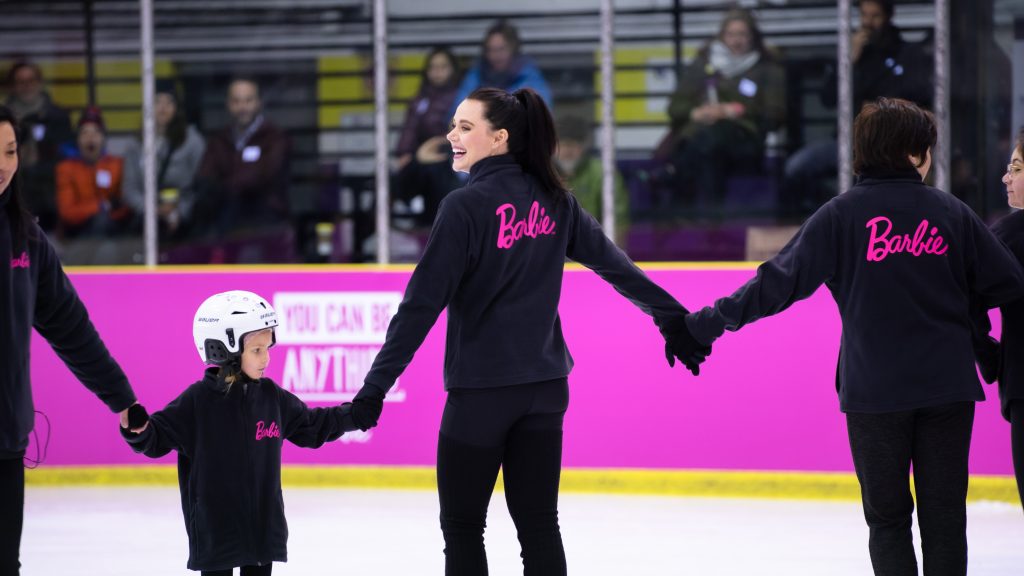Young Toronto skaters got the shock of their lives when Olympic ice dancing champion Tessa Virtue showed up at their practice.

Virtue, who rose to fame at the 2018 PyeongChang Olympic Winter Games, surprised the young athletes at the McCormick Arena in Toronto on Monday in celebration of the launch of her new Barbie doll.
The doll is part of Barbie’s Dream Gap Project, which honours “women who are breaking boundaries to inspire the next generation of girls” and includes over 40 role models from 18 countries.
“Nothing is impossible,” Virtue, 30, told the skaters.
“It’s just a lot of hard work. But if it’s something that you’re eager to pursue and you’re passionate about, then you do the work, commit to the process and surround yourself with a good team.”
READ MORE: Teen girls are less active than boys, and it’s putting their health at risk. How do we fix it?
Virtue’s Barbie doll is dressed in an ice dancing costume inspired by her 2018 Olympic Winter Games look. It is among other dolls, including para-athlete wheelchair racer Madison de Rozario, fencing champion Ibtihaj Muhammad and tennis player Naomi Osaka.
The Mattel project aims to raise awareness around the limitations that prevent girls from reaching their full potential in sports.
Virtue and her 32-year-old ice skating partner Scott Moir captured hearts worldwide following their gold-medal-winning Moulin Rouge performance at the 2018 Winter Games. She said it is important to use her platform to pay it forward to aspiring athletes.
“I’ve benefited from really powerful women who have inspired me,” Virtue said in an interview with Global News.

Get daily National news
“I see the stress that young kids are faced with these days and everyone needs a boost. Everyone needs someone to believe in them. Everyone needs a reminder that they’re good enough exactly the way they are.”
READ MORE: Why are girls dropping out of sports?
The high rates of girls quitting sports is another reason to support young girls with big dreams, Virtue said.
By age 14, girls are twice as likely to drop out of sports compared with boys, according to a Women’s Sports Foundation study.
“It’s a heartbreaking stat,” Virtue said.
“If we can combat that with some programs that allow people to stay active and maintain a healthy lifestyle, there’s so much self-esteem to be gained.”

One of the main reasons girls quit sports is social stigma, Jocelyn Thorpe, a women and gender studies professor at the University of Manitoba, previously told Global News.
“I do think that part of it is this idea that girls throw like a girl, run like a girl, pass like a girl,” Thorpe said.
“It makes it not appealing for someone to pass a ball to someone who supposedly doesn’t know what to do with it.”
READ MORE: Girls struggle more to play sports longer
A University of Toronto study found self-consciousness related to body image was another reason why teens drop out of physical activities.
To help combat this, Virtue said parents need to cheer on their children and encourage them to stay committed.
“I think they have to take some responsibility and accountability for it. That’s empowering because it also gives them the control and the autonomy to take it on themselves.”
The Barbie doll collection is available throughout the country only at Toys R Us.
— With files from Global News’ Tamara Forlanski
amanda.pope@globalnews.ca









Comments
Want to discuss? Please read our Commenting Policy first.